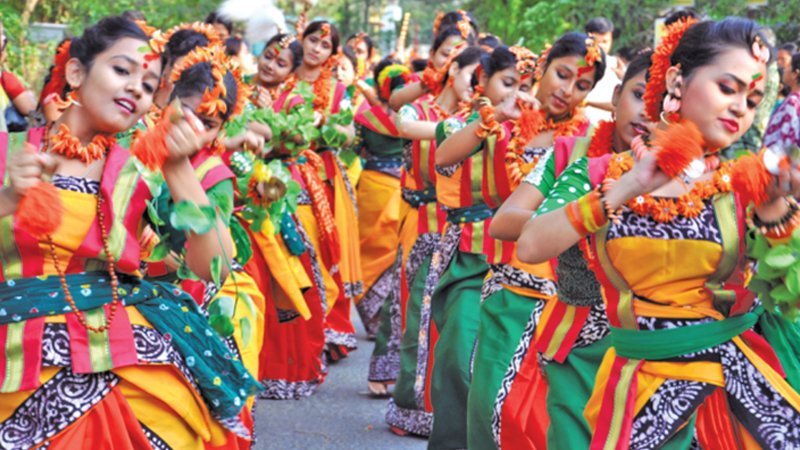
Bangali Culture
Bangali Culture is perceived as enlightenment and excellence of taste in fine arts, humanities and knowledge, but in broader terms, it is an integrated pattern of human knowledge, behaviour, beliefs, customs, morals, conventions, shared attitudes, social organisation and achievements. Anthropologically, culture is a complex idea. Since all cultures are unique in origin, development, value system and organisation, one particular culture differs from another both in outline, expression and essence. Bangali culture is the outcome of the accumulation and synthesis of many different ethnic and religious groups and subgroups and varied classes interacting and influencing each other for centuries. The coexistence and continuation of disparate elements of culture for centuries have created a unique Bangaliness, which can be identified as Bangali culture, and defined as the culture of “Bengal” and of the Bengali speaking people.
Basis of Bangali Culture Since Bangali culture is the culture of Bangla and or of the Bangali-speaking people, it cannot, at least theoretically, date back to earlier than when Bengal came to be known as one single administrative unit or before Bangla emerged as a full fledged language. However, inevitably Bangali culture did not take shape as soon as the area came to be called “Bangala” or the Bangla language developed its main traits. It was, indeed, a natural development over thousands of years of the culture of the people of the area, which took the name Bangala when the kingdoms of this region, namely, Gour, Rarh, Dakshin Rarh, Suhma, Varendri, Harikel, Samatat and Banga, were unified into one country by Shamsuddin Iliyas Shah in the 1350s. As well as this political change, the bangla language developed into proper Bangla more or less around the same time. Therefore, Bangali culture can be said to be approximately eight hundred years, or at best one thousand years old, but it was primarily based on the culture of this region, which was thousands of years old. For example, rice, which is still the staple food of the Bangalis, was first cultivated at least three thousand years before the advent of the Aryans to this region; and it continued to be cultivated later even when Bengal was swept away by a host of invaders, including the Aryans, Turks, Arabs, Afghans, Mughals and Europeans…


